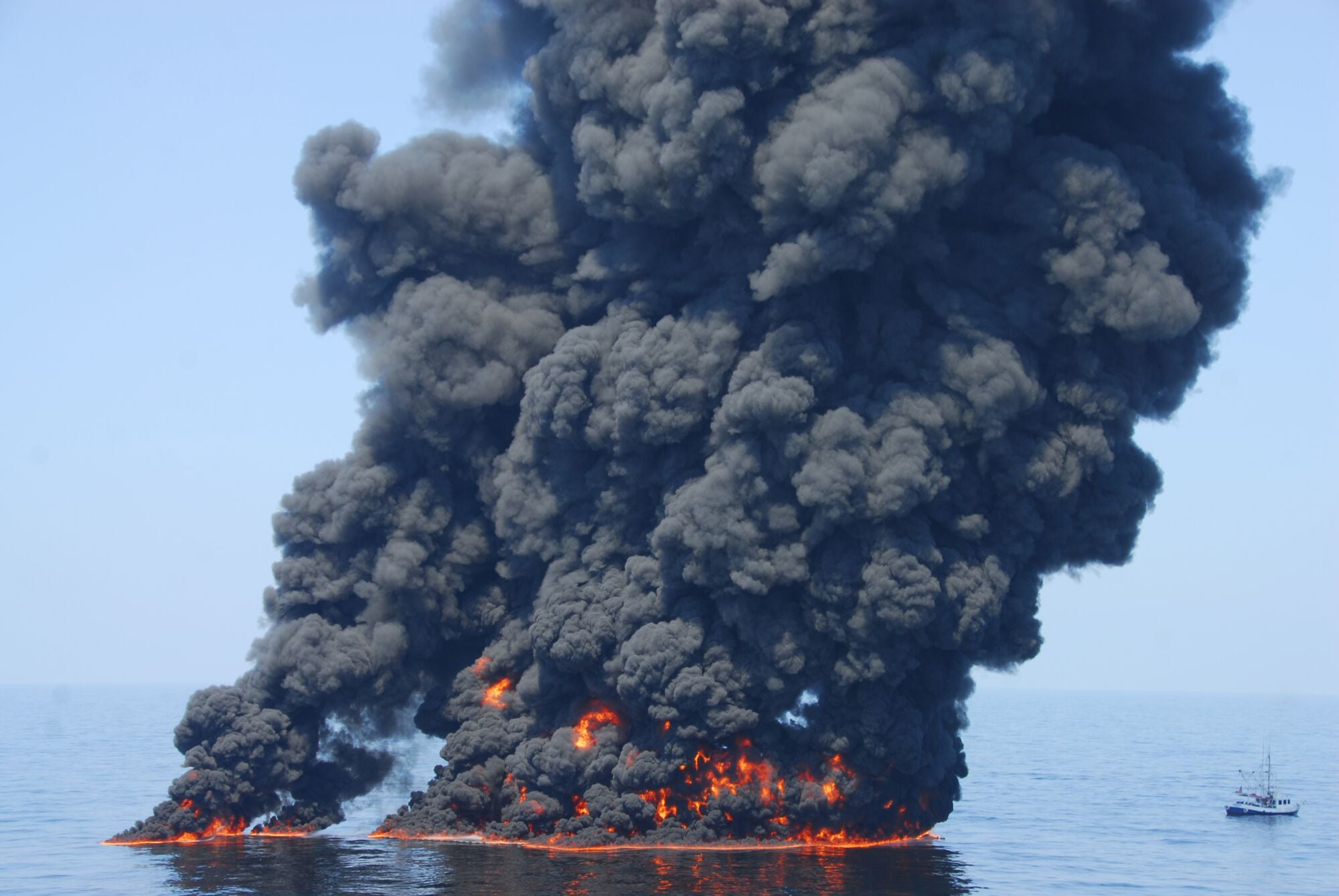Earthjustice goes to court for our planet.
We’re here because the earth needs a good lawyer.
Government Rejects New Drilling Proposal from the Company Behind the Deepwater Horizon Spill
What’s happening: The federal government has rejected an initial proposal by BP, the company behind the worst oil spill in U.S. history, to build a new, ultra-deepwater project in the Gulf of Mexico.
The decision came after Members of Congress sent a letter to the Bureau of Ocean Energy Management, urging the agency not to give BP a second chance to harm the Gulf with such a reckless proposal. Tens of thousands of people also submitted public comments to the BOEM demanding the agency disapprove the project. BP will now be required to make modifications to its proposal and resubmit it for the agency to make a new decision.
Why it matters: BP’s Deepwater Horizon disaster in 2010 killed 11 people and released 4.9 million barrels of oil that blanketed the Gulf shoreline. It wiped out horrific amounts of marine life, cratered local economies, and left Gulf communities burdened with everything from health issues to unemployment.
The conditions around BP’s new proposed project, Kaskida, could make it even more dangerous than the Deepwater Horizon. Kaskida would be in greater depths, where equipment would have to withstand higher pressures and temperatures.
We’re telling the government not to give BP another chance to contaminate the Gulf and disrupt coastal communities.
The worst oil spill in U.S. history
- In April 2010, a faulty BP-operated oil well exploded in the Gulf of Mexico, creating a geyser of crude oil and destroying the Deepwater Horizon oil rig. It took 87 days for emergency crews to stop the oil flow, which polluted over 1,300 miles of coastline in Florida, Alabama, Mississippi, Louisiana, and Texas.
- The oil was a massacre for marine life. It killed over 100,000 seabirds, thousands of turtles, dolphins, and whales, and countless fish populations. Oil from the spill was still being cleaned off of beaches four years later, which had devastating effects for the local tourism and fishing economies.
- Though BP sought to hide the true extent of its disaster, settlements with the U.S. government ultimately forced it to admit it had lied to Congress and pay $4.5 billion for the deaths and damage it caused.
- BP also fought lawsuits brought by the emergency workers hired to clean up the spill, who developed medical illnesses after being exposed to harsh solvents.
BP is unprepared to drill in Kaskida’s ultra-deepwater
- BP’s new drilling project would be in “ultra-deepwater,” where conditions beneath the ocean floor make oil extraction highly risky. This new underwater oil field is over 1,000 feet deeper than the Deepwater Horizon’s location, under pressures that make wells six times more likely to suffer a blowout.
- This depth requires equipment designed to withstand maximum heat temperatures and pressure — yet BP has not demonstrated that a high-pressure, high-temperature well like Kaskida could be safely operated.
- Oil companies drilling offshore are legally required to plan how they’ll handle a spill, and the plan must include mechanical equipment to remove the oil. The conditions at the Kaskida site will not allow for any mechanical recovery of oil. Instead, BP would resort to burning the oil, releasing it into the air, or using chemicals dispersants that leave the oil in the water.
- BP’s project also threatens already-overburdened Gulf communities, sensitive deep-sea ecosystems, and imperiled marine life such as Kemp’s ridley sea turtles and the critically endangered Rice’s whale, whose population was significantly harmed by Deepwater Horizon.
BP shouldn’t get another chance to decimate the Gulf
- In the 15 years since the Deepwater Horizon disaster, the oil industry has increasingly moved into greater depths. Greenlighting Kaskida only increases the risk of catastrophic oil spills, along with the burden on Gulf communities forced to deal with polluting industries that are profiting at their expense.
- For years, Earthjustice has advocated for stronger protections from the harms of fossil fuel development in the region. In February, we sued the Trump administration for seeking to revoke protections that President Biden enacted to protect vulnerable ocean territory along each U.S. coast from the harms of offshore drilling. In March, we won a case challenging a 73-million-acre oil and gas lease sale in the Gulf.
- The Bureau of Ocean Energy Management has until February 17 to decide whether to approve Kaskida.
Join us in telling BOEM that BP’s proposed ultra-deepwater drilling project is too dangerous to proceed.
